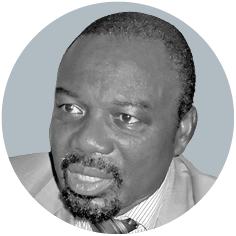Comment
Salt in an open sore
By Vladimir Antwi-Danso
Laurent Gbagbo, who lost Côte d’Ivoire’s presidential elections as the incumbent in November, refuses to step down from power. Alassane Outtara, the obvious winner, is marooned in a hotel in Abidjan, protected by international peacekeepers. But peace is not kept, war has already broken out in western areas of the country. The Forces Nouvelles, which are close to Ouattara, have captured some important towns and villages.
Gbagbo’s followers, however, engaged in violence first. The ex-president seems determined to stay in power, no matter how much bloodshed that will take. Over 700,000 people have been internally displaced or become refugees. Arson, torture, lawlessness and murder have become daily occurrences.
This is not merely a national disaster; it is a continental one. Once again, democratic transition has not worked in Africa. The message is that incumbents may well prevail if they resort to violence after loosing elections. The power-sharing agreements made in Kenya and Zimbabwe in similar situations set a bad example. They allowed presidents to stay in office without the electorate’s mandate.
No doubt, Ouattara is the legitimate president. Observers from the African Union (AU), the Economic Community of West African States (ECOWAS), the UN and the EU agree that this is so. But even though election results are blatantly being ignored, there is no action beyond empty threats and pacifist rhetoric.
In 2001, ECOWAS passed an important protocol on elections, democracy and good governance. In 2007, the AU passed a similar and equally meaningful protocol. In this moment of crisis, however, neither is being applied. The core issue in the regional-global security seems to be how to structure the relationship between the UN, regional and sub-regional organisations. The idea is to maximise the comparative advantages of each body and ensure the complementarity of roles, while maintaining the primacy of the UN on peace and security. In the Ivorian situation, however, there is no complementarity.
An AU panel was supposed to craft a political solution to the Ivorian crisis by the end of February. It failed to do so in time. One of the panel’s problems was that the exemplary show of unity among AU members immediately after the Ivorian elections has collapsed. Gbagbo pretends to be an anti-imperialist, suggesting that Ouattara is a western stooge, and some heads of state are buying that nonsense. It took the AU until mid-March to declare Gbagbo the culprit, and that statement had no tangible consequences.
Even ECOWAS, chaired by Nigeria, has accused the AU of being inconsistent, blaming South Africa more than any other member country for this state of affairs. Depressingly, ECOWAS looks just as incapable of action however. Nigeria is busy with its own election campaign. And Ghana seems more or less to have taken sides with Gbagbo. Senegal and Burkina Faso have indicated that they would be prepared to use force under an ECOWAS cover. Obviously, however, there is no collective will to act.
The EU and the UN are hardly paying attention anymore, they are obsessively watching the dramatic events in north Africa. North Africa matters a lot, of course, but so does Côte d’Ivoire, where much more is at stake than the political characters and careers of Ouattara and Gbagbo.
The real issue is whether the results of an election, that most observers deemed to be fair, will be recognised. That is what the regional and sub-regional election protocols are all about. If they are not enforced, that will be an invitation to replicate such devious ploys in other countries.
Democracy is being killed in Côte d’Ivoire. And its death in one country will affect others in the region. Nigeria is holding elections in April, Ghana next year. In Côte d’Ivoire ethnic and religious divides are being exploited to the full. The open sore of Africa is the continent’s democracy deficit. The Ivorian impasse is adding salt to it.









